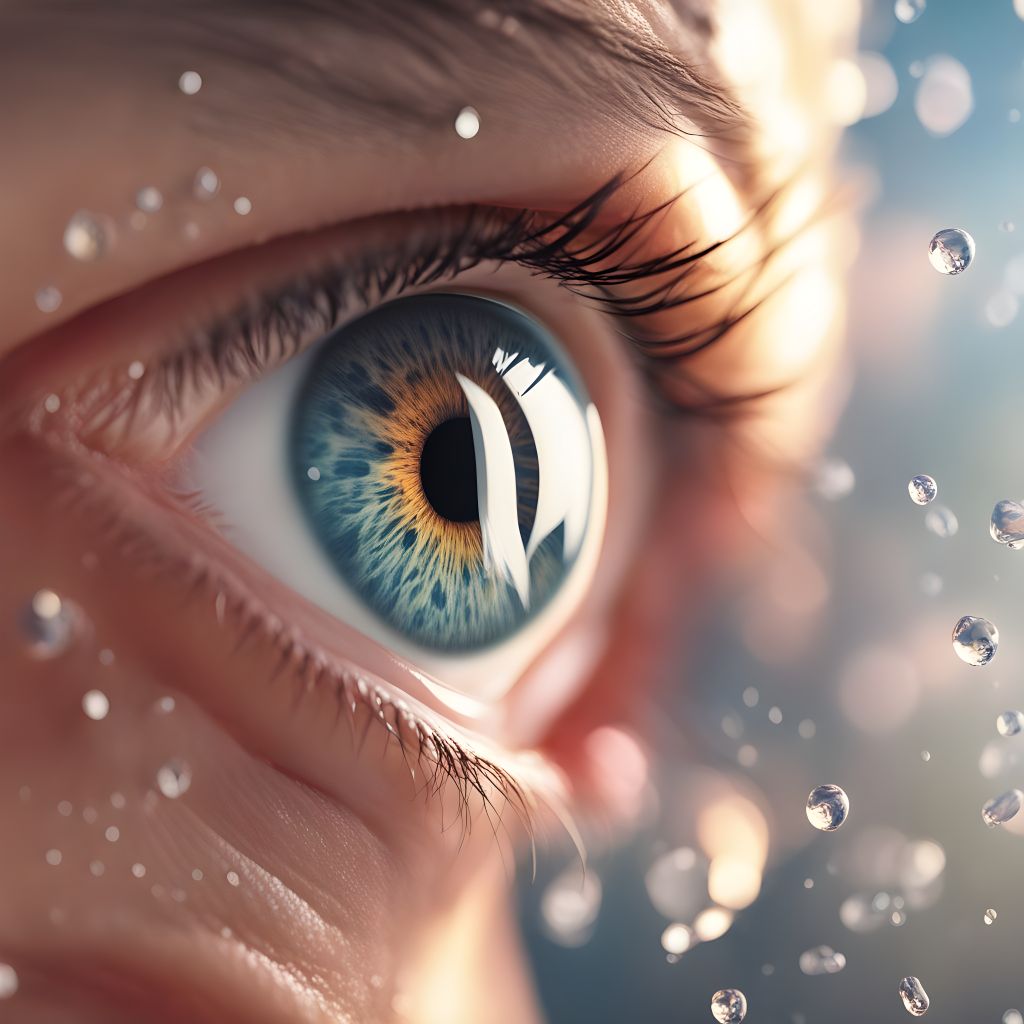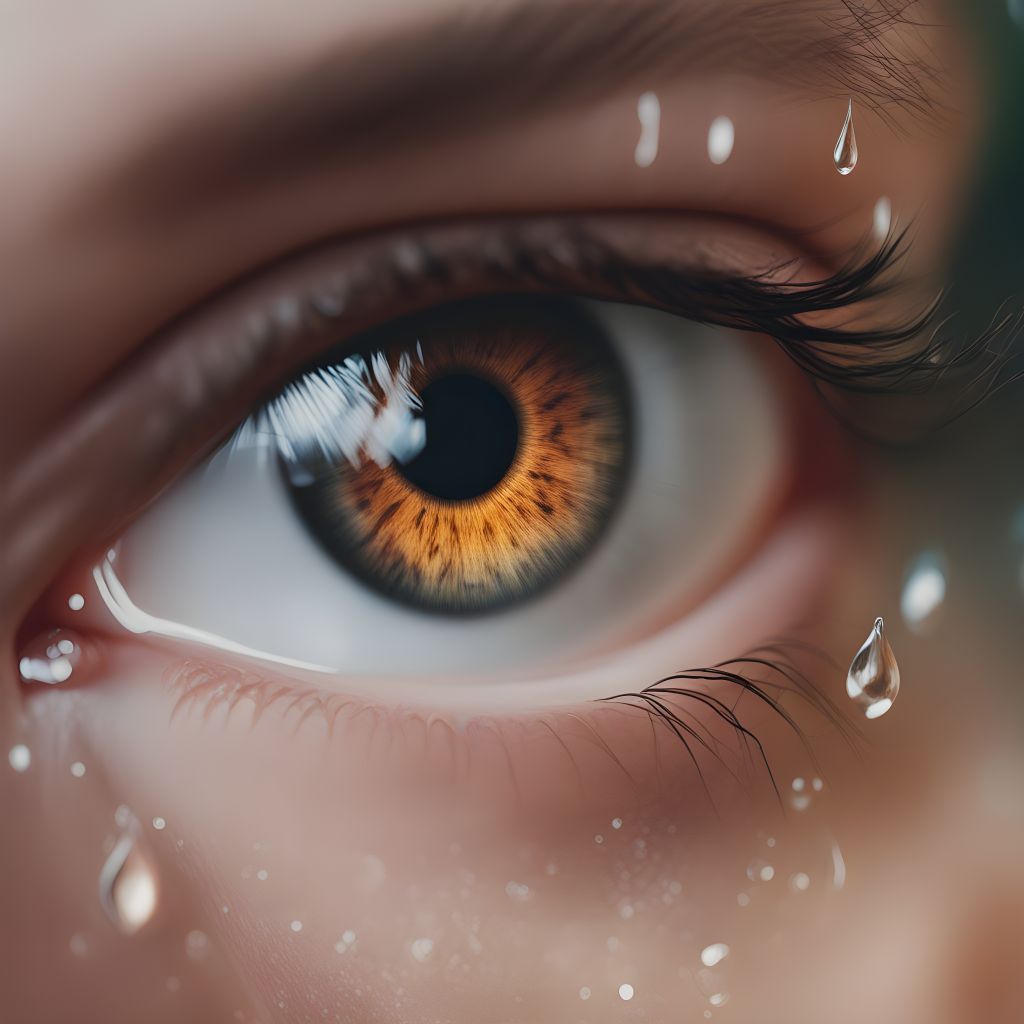Dry eye causes — What Is Dry Eye?
If you have dry eye syndrome, your eyes either don’t make enough tears or the tears dry out too fast, making your eyes feel dry, itchy, and uncomfortable. There are many things that can lead to this, such as the surroundings, lifestyle choices, and existing health problems. The tear film is critical for keeping the eye’s surface smooth and clear, which is beneficial for eye health and pleasure. Damage to this tear film can result in heat, burning, a gritty sensation, and even blurred vision.
To keep the eyes safe from irritation and infections, they need a steady layer of wetness. Water, oils, mucus, and proteins make up tears. These all work together to keep the eye moist and safe. These components can cause dry eye if out of balance. Although painful, this condition can make it difficult to drive at night, read, or use a computer.
People with dry eye syndrome should know what it is and what causes it. Without treatment, dry eye can worsen, leading to issues such as redness or damage to the eye’s surface. Seeking advice from an eye doctor can help figure out what’s wrong and how to treat it.
Dry eye causes: environmental factors
Various environmental factors can significantly affect chapped eyes. Lengthy exposure to air conditioning and heating equipment is one of the most common triggers. These systems can greatly reduce the low humidity levels in the air. This makes the tear film that protects our eyes evaporate faster. Permanently dry air in places with temperature control, like offices or homes, can worsen dry eye symptoms for people who spend a lot of time there, such as irritation, redness, and a gritty feeling.
Wind and dust exposure are also important natural factors. People whose jobs take them outside or in windy places experience an uncomfortable feeling. If you have dry eyes, wind can speed up tear loss, and dust can hurt the eye’s surface, making it even more dry. You should shield your eyes from these elements and reduce the likelihood of experiencing symptoms of dry eyes.
Especially in this digital age, spending a lot of time in front of a screen is another big cause of dry eyes. While looking at a computer, smartphone, or tablet for long periods of time, your blink rate may slow down. This means that tears don’t spread across your eye surface as often. This can lead to the formation of dry spots on your eyes, causing discomfort. One way to help with this is to take breaks every 20 minutes and follow the 20-20-20 rule: look at something 20 feet away for 20 seconds.
Conditions with low humidity, like those found in dry eye syndrome patients’ homes or in places they may be traveling, are also important. Because there is less wetness in the air, tears can evaporate faster in places with naturally low humidity or in buildings that use a lot of heating and cooling systems. For simple but effective relief of symptoms, using a humidifier to keep the humidity level right can be helpful.
In conclusion, smoking, chemicals, and pollution can dry your eyes. If these substances infiltrate your eyes, they can cause irritation and disrupt the tear film, leading to dry and vulnerable eyes. If you stay away from these irritants or use air filters, it is better for your eyes.

Issues with health
Major medical conditions can cause dry eye syndrome in people from all walks of life. Lupus and rheumatoid arthritis, for example, are known to make it challenging for the body to make enough tears. This can make the glands that make tears swell, which stops them from working properly and leaves your eyes feeling dry and itchy.
Growing older often leads to a decrease in tear production. Sometimes, as we age, our lacrimal glands produce fewer tears. This can cause dry-eye complaints. As people get older, their bodies become less able to keep a healthy tear film. This is particularly common among people over 50.
Changes in hormones are another important factor in the development of dry eye syndrome, particularly in women. If your hormones change during pregnancy, menopause, or when you use birth control, it can make your eyes dry. These changes can upset the balance of the tear film, increasing the likelihood of dry and irritated eyes.
If you have dry eyes, you may also have diabetes. Poor blood sugar control can damage the nerves responsible for producing tears, leading to decreased tears. For people who already have diabetes, this can be especially challenging because it makes their daily lives even more uncomfortable.
Thyroid issues such as hypothyroidism can also lead to dry eye complaints. The thyroid gland regulates various body processes, including those that impact the eyes. It can change the quality and quantity of tears made when thyroid hormone levels are out of whack.
Read also – Eye Relaxation Exercises

Lifestyle and Occupational Factors
In many jobs, using digital devices like computers, tablets, and smartphones for long periods of time is a regular factor. Most of the time, people who stare at computers for long periods of time, whether at work or for fun, blink less often. This can make tears spread less evenly across the surface of the eye. Not moving as much can lead to dry spots, which can be painful and irritate the skin.
Another thing to consider is contact lenses. Contact lenses, due to their ease of use, can alter the natural tear film on the eye’s surface, particularly when worn for extended periods or in dry environments. People who wear contact lenses may have painful signs like dry, red, and gritty eyes.
Smoking is another habit that can exacerbate dry eye syndrome. Cigarette smoke’s irritating and poisonous chemicals can damage the linings of the eyelids, accelerating the drying out of tears and reducing their production. Both smokers and those around them experience the effects.
The work environment is another factor. Graphic designers, data entry workers, and people who work on assembly lines may be more likely to get fatigued eyes because they have to focus on their work for long periods of time. Because of the long periods of focus needed for these tasks, people blink less, and their tear films don’t spread out enough. Additionally, the air conditioning, heating, or low humidity in some workplaces may make dry eye problems even worse.
Personally, I found that working at a computer all the time made my eyes dry. What causes dry eye syndrome? I talked to an ophthalmologist online, and he agreed that long periods of time in front of a screen and a dry office setting were likely to blame. He advised me to frequently take breaks from the computer, use artificial tears, and ensure the right amount of humidity in my workspace. This appointment helped me understand how my daily habits affected my eye health and how to improve those symptoms.
In order to effectively treat dry eye problems, it is important to make changes to your lifestyle and work habits. You can make big differences in your eye health and happiness by doing simple things like taking breaks from screens, using artificial tears, keeping the humidity level correct, and being aware of how often you wear contact lenses. In order to better manage their dry eye symptoms and general quality of life, people can take care of these things.
Read also – Itchy eyes: Why you shouldn’t rub eyes


















